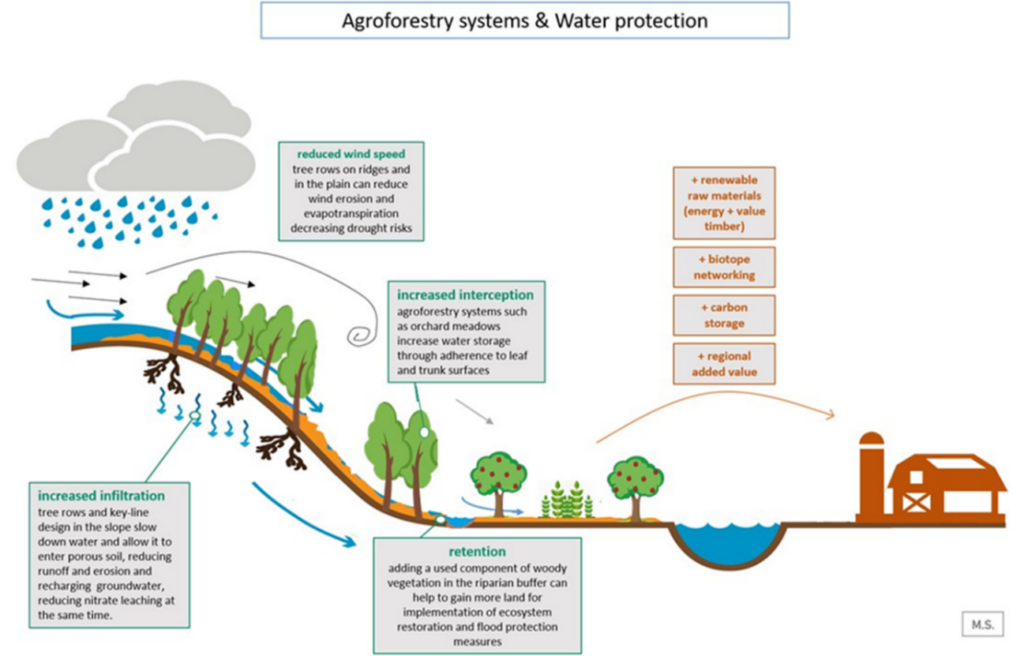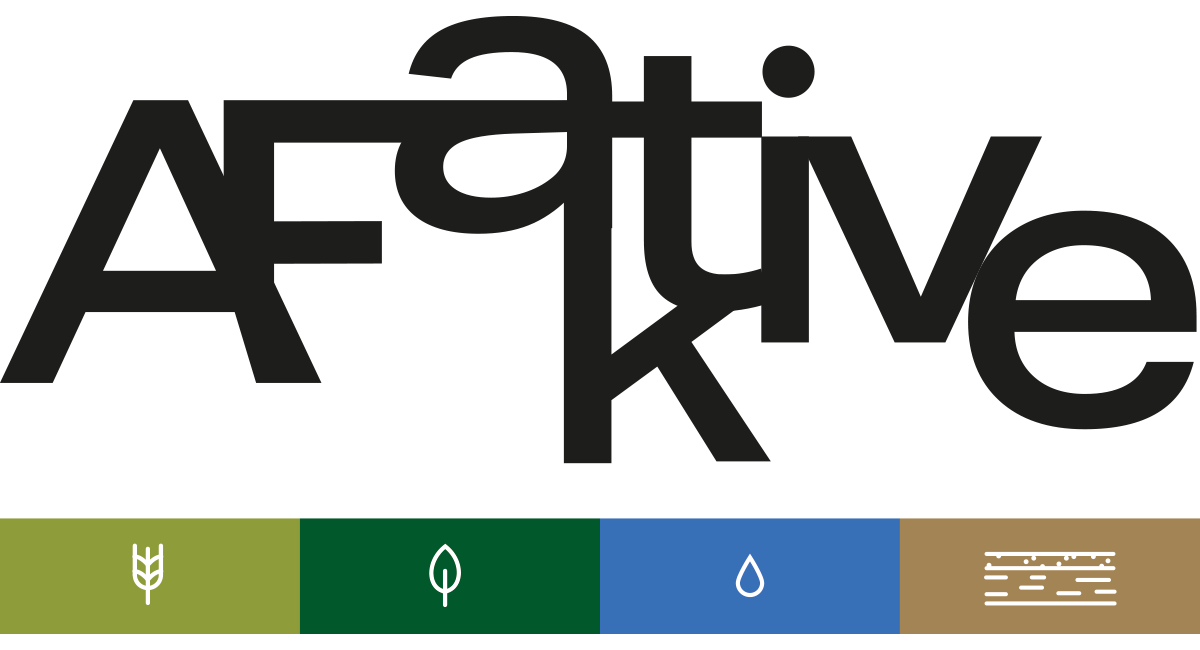The new project will promote agroforestry systems as a tool for improving water management
Under the leadership of the Institute for Applied Material Flow Management (IfaS), the EU LIFE project AFaktive, “Agroforestry as a Key to improve Water Management & Adaptation to Extreme Weather Events”, started on 1st October 2023.
The AFaktive project develops, tests and disseminates new approaches for improved water management in the landscape through the implementation of agroforestry systems. As a nature-based solution, agroforestry, i.e. the targeted combination of trees or shrubs with traditional agricultural use, can help to improve water retention in the landscape and protect against drought, erosion and flooding. Agroforestry therefore has the potential to make agriculture and people in Europe more resilient to climate change and extreme weather events.
The aims of the project are:
- to develop and test new tools for the integrated planning of agroforestry as a nature-based solution in land management,
- to quantify the effects of agroforestry systems on the water balance and especially on erosion and flood control, and
- to develop and implement more good examples of improved water management through agroforestry.
Equipped with a total budget of € 5.8 million (of which € 3.4 million EU funding), AFaktive will advance the implementation of agroforestry systems for improved water management. This will be carried out at farm and regional level at model and demonstration sites in Germany, Belgium and the Netherlands. Furthermore, the project will develop planning tools and support policy makers in improving the policy framework for agroforestry implementation. Starting from pilot farms that already have initial experience with the topic of agroforestry, new, hydrologically optimised plantations will implemented in a first step. Further practical farms, for which the topic is still new, are to be built up and supported as multipliers, in order to plan, in a second upscaling phase, finally on regional level – from the municipal level to the water catchment area.
The 5-year project (Oct. 2023 to Sept. 2028) brings together 11 partners from three countries – Germany, Belgium and the Netherlands – as well as numerous practitioners.

© Mihaela Spac / IfaS
